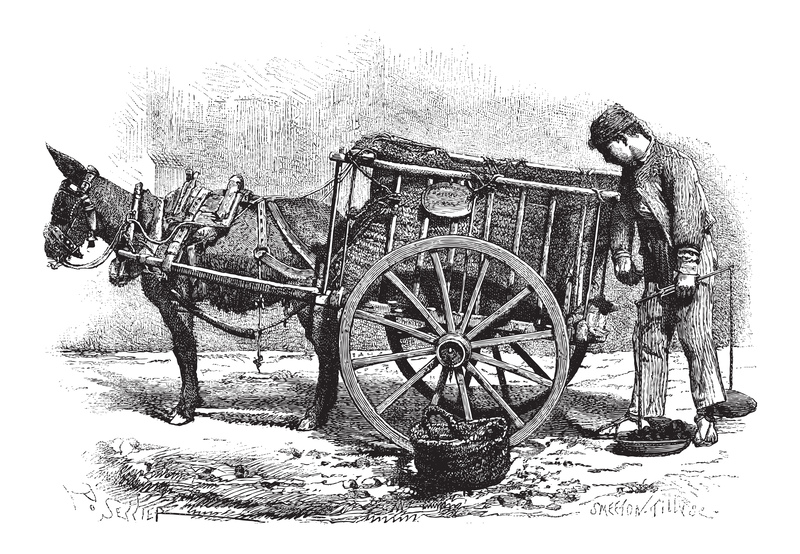Improper waste disposal is one of the most pressing environmental issues of our time. It has far-reaching consequences that not only affect the environment but also human health and the global economy. In this article, we will delve deep into the hidden impacts of improper waste disposal and understand why it is imperative to address this issue with urgency.
The Environmental Consequences of Waste Mismanagement
Improper waste disposal has a myriad of hidden environmental impacts that often go unnoticed. Let's explore some of these adverse effects:
1. Soil Contamination
When waste is not properly disposed of, hazardous chemicals and toxins can leach into the soil. This contamination can affect plant life and disrupt ecosystems. It is crucial to understand that soil quality directly impacts agriculture and biodiversity.
- Impact on Agriculture: Contaminated soil affects crop yield and food safety. Farmers depend on fertile soil, and when this is compromised, it can lead to economic instability and food shortages.
- Loss of Habitat: Natural habitats can be destroyed, jeopardizing various species that depend on specific soil conditions to thrive.
2. Water Pollution
One of the most alarming impacts of improper waste disposal is water pollution. When waste finds its way into water bodies, it poses significant threats to aquatic life and human health.
- Threat to Aquatic Life: Chemicals and heavy metals from waste can be lethal to fish and other marine life, disrupting food chains and ecosystems.
- Danger to Human Health: Polluted water sources can lead to diseases and health issues, especially in communities that rely on these bodies of water for drinking and sanitation.
3. Greenhouse Gas Emissions
Improperly disposed waste in landfills generates methane, a potent greenhouse gas that contributes to climate change. The lack of efficient waste management systems exacerbates this problem.
- Global Warming: Methane is more effective than carbon dioxide in trapping heat in the atmosphere, hence significantly contributing to global warming.
- Air Pollution: Waste incineration, often used as a disposal method, releases harmful pollutants into the air, affecting air quality and contributing to respiratory problems.

The Socio-Economic Impacts of Poor Waste Management
Apart from environmental effects, improper waste disposal has profound socio-economic ramifications. Addressing these issues is crucial for sustainable development.
1. Public Health Concerns
Communities living near unregulated landfill sites face numerous health risks. The exposure to toxins and unhygienic conditions can lead to chronic illnesses and impede the quality of life.
- Infectious Diseases: Poor waste management can lead to outbreaks of diseases like cholera, especially where waste mixes with water sources.
- Chronic Health Problems: Long-term exposure to pollutants can result in respiratory and cardiovascular diseases, affecting community health.
2. Economic Burden
The economic implications of improper waste disposal are extensive. Governments and communities bear the financial strains of inadequate waste management.
- Clean-Up Costs: The expenses involved in cleaning up polluted environments are substantial.
- Healthcare Expenditure: As public health deteriorates due to pollution, healthcare costs rise, placing a strain on both individual finances and public health systems.
3. Impact on Tourism
Tourism can be adversely affected in regions where waste management is poor. Polluted beaches and landscapes can deter tourists, impacting the local economy reliant on tourism.
- Loss of Revenue: Attractive natural sites lose their appeal when littered, leading to decreased tourist visits and loss of income.
- Community Development: Decreased tourism can stifle economic development and job opportunities in communities relying on this industry.

Solutions and Strategies for Proper Waste Management
The solution to these pervasive issues lies in adopting sustainable waste management practices. Here are some effective strategies:
1. Waste Reduction and Recycling
Reducing the amount of waste we produce is essential. This can be achieved through recycling and encouraging the use of reusable materials.
- Recycling Programs: Implementing and supporting recycling programs can significantly reduce the waste sent to landfills.
- Education and Awareness: Informing the public about the benefits of waste reduction and recycling can lead to more environmentally conscious behavior.
2. Sustainable Disposal Methods
Moving away from traditional landfill methods, embracing innovative and sustainable disposal practices is paramount.
- Composting: Organic waste can be composted, turning it into nutrient-rich soil rather than being discarded.
- Waste-to-Energy Processes: Converting waste into energy can provide alternative energy sources while reducing landfill waste.
3. Government and Community Action
Legislative measures and community involvement play crucial roles in addressing waste management issues.
- Regulations and Policies: Governments should enforce strict regulations on waste disposal and support sustainable practices through policies.
- Community Initiatives: Local communities can organize clean-up drives and educational campaigns to promote environmental stewardship.
Conclusion: The Imperative to Act
In conclusion, improper waste disposal has profound hidden impacts that permeate our environment, health, and economies. Addressing this issue requires a concerted effort from individuals, communities, and governments worldwide. By adopting sustainable waste management practices and raising awareness, we can mitigate the adverse effects and pave the way for a more sustainable future.
It's time to act decisively and contribute to a healthier planet for ourselves and future generations. Together, we can make significant strides in combating the challenges posed by improper waste disposal.